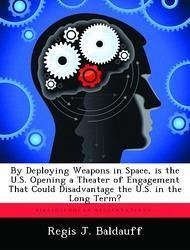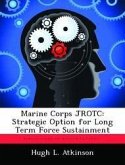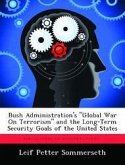Since man's initial contact with space in 1957, the U.S. and Russia have flirted with putting weapons in space. Today, two camps exist in the space weapons debate: sanctuary and weaponization. The sanctuary camp argues that space should remain free of weapons because it is in the best interest of the United States. The weaponization camp feels the U.S. dependence on space is too great to leave assets there unprotected. Weaponization is especially important because of the large dependence of the U.S. military on space for force enhancement purposes. This thesis examines some of the major arguments by evaluating them against the U.S. instruments of national power: diplomatic, information, military, and economic. According to this thesis' research, deploying weapons in space would disadvantage the United States in the long term. The evaluation of the options presented in chapter 3 led to the choice of continuing research and development with a limiting treaty (Option 3A) as the highest scoring option.








